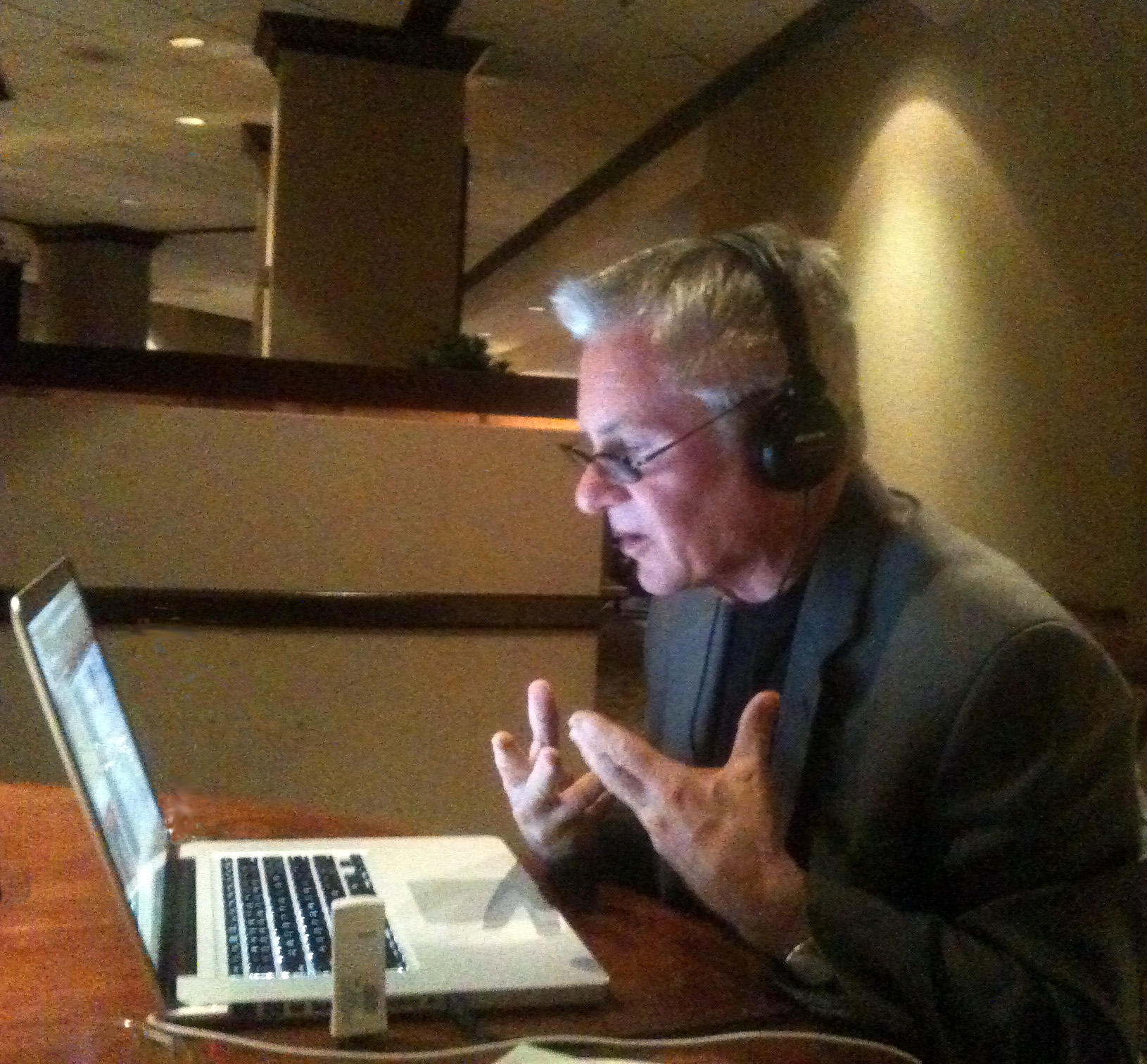 AU President Emeritus and former Dean of the Graduate School of Education Dean Dr. David Nunan teaching a live webcam class
AU President Emeritus and former Dean of the Graduate School of Education Dean Dr. David Nunan teaching a live webcam class
The Anaheim University Graduate School of Education offers a cutting-edge online Doctor of Education in Teaching English to Speakers of Other Languages (Ed.D. in TESOL) degree program. Experience the following AU advantages:
Benefits
- Experience Anaheim University's TESOL professors through live webcam classes
- Receive a Doctor of Education in TESOL through the flexibility of online learning
- Meet your professors and classmates from around the world face-to-face at 2 residential sessions
- Earn your Doctoral degree in approximately 3 years while working full-time
- Improve your teaching skills and qualifications
Features:
- 16 x 9 week Online Courses + Dissertation
- Weekly live webcam classes
- New terms begin every 10 weeks
- Register for 1 or 2 courses per term
- 1 Course = 4 Credit Points
- Ed.D. in TESOL Program = 76 Credit Points
- 2 x 4 day residential sessions. Sessions held annually in California or other select locations
- Total duration = 3+ years
Here is a basic overview of how the Ed.D. in TESOL courses work.
Online Discussion Forum
Assignment 1
Assignment 2
Weekly Real-Time Webcam Class + Online Discussion Forum participation(at your convenience)
Written answers to weekly chapter questions
2 assignments
Outstanding Faculty
One of the primary deciding factors for students who choose the Anaheim University Doctor of Education in TESOL is the quality of the highly esteemed faculty who teach AU students in weekly live webcam classes.
- Second Language Acquisition Expert/Ed.D. in TESOL Designer Dr. Rod Ellis and Past Presidents of TESOL International Association (Dr. David Nunan, Dr. Andy Curtis, and Dr. MaryAnn Christison) teach students through live face-to-face HD webcam classes as well as at face-to-face residential sessions
- The Doctor of Education in TESOL Program Designer Dr. Rod Ellis, was awarded the Duke of Edinburgh prize for the best book in applied linguistics for his Oxford University Press classic The Study of Second Language Acquisition
- All courses are taught by applied linguists and authors for such publishers as Oxford University Press, Cambridge University Press, Thomson Publishing, Prentice-Hall, Longman, McGraw-Hill, etc.
- 100% of the AU TESOL faculty are regular speakers at various international TESOL conferences and are considered to be experts in the field of TESOL by the TESOL community.
Curriculum
This area is broad-based. It aims to provide students with the disciplinary knowledge that forms TESOL. It addresses the linguistic, psycholinguistic, psychological and sociolinguistic foundations of language teaching. On completing the courses in this area, students will have developed a clear understanding of theories of language learning, and of the theoretical and empirical underpinnings of different language teaching approaches, instructional materials, and language testing.
- EDU 700 Instructed Second Language Acquisition (4 credits)
- EDU 701 Interlanguage Pragmatics (4 credits)
- EDU 702 Individual Learner Differences in Language Learning and Teaching (4 credits)
- EDU 703 Sociolinguistics and Language Teaching (4 credits)
- EDU 704 Discourse Analysis for Language Teachers (4 credits)
- EDU 705 Language Testing (4 credits)
- EDU 706 Special Topic (4 credits)
This area is more practice-oriented. It examines the principles that inform the design and evaluation of courses in language teaching. It provides students with an opportunity to engage in projects directly related to TESOL and thereby to develop the skills required of leaders in the field.
- EDU 710 Curriculum Design (4 credits)
- EDU 711 Technology and Language Education (4 credits)
- EDU 712 ELT Materials Development (4 credits)
- EDU 713 Special Topic (4 credits)
This area seeks to lay the ground for students’ ongoing professional development. It focuses narrowly on two key domains of professional activity in TESOL - ELT management and teacher education.
- EDU 720 ELT Management (4 credits)
- EDU 721 Language Teacher Education (4 credits)
While students will have been introduced to a range of research relevant to TESOL in the other areas of the Ed.D, this area seeks to develop the knowledge and skills needed to design research studies and to collect and analyze data. It provides a platform for the students’ work on their dissertation.
- EDU 730 Qualitative Research Methods (4 credits)
- EDU 731 Quantitative Research Methods (4 credits)
- EDU 732 Dissertation Proposal Writing (4 credits)
In addition, students will complete a dissertation (EDU 733 Dissertation) worth 12 credits
Pioneers in the Field of TESOL
The Anaheim University Graduate School of Education prides itself on pioneering the field of TESOL in the mid-1990s with the world's first Masters in TESOL program to be taught online in r.
Work Full Time & Study Online
The AU Ed.D. in TESOL degree program allows you to study online while working full-time and fulfilling your personal responsibilities. This provides you with the opportunity to apply what you learn today in the classroom tomorrow. The courses are taught 100% online, and you also have the opportunity to meet your faculty and classmates from around the world at two x four-day residential sessions that are held annually in California as well as at other select locations. The residential sessions are typically held from a Thursday to a Sunday or a Saturday to Tuesday, allowing you to minimize the time you will need to be away from work.